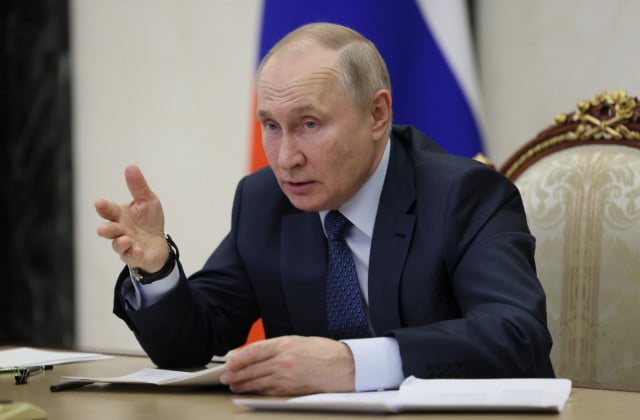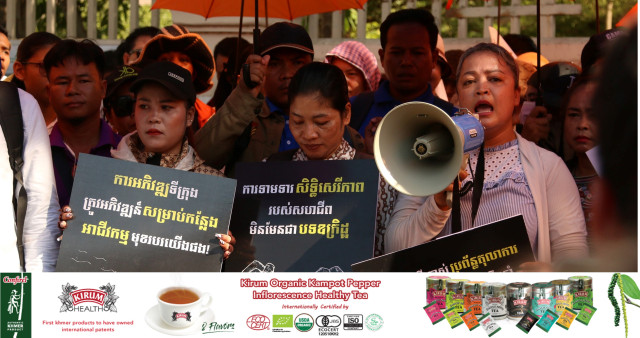Opinion: ASEAN Needs Strong Measures to Curb North Korea’s Profits from Cyber Crimes

- By So Channtha
- April 24, 2024 4:10 PM
The Democratic People's Republic of Korea (DPRK) presents a unique challenge in the cybersecurity landscape. Beyond its well-documented nuclear ambitions, North Korea has cultivated a sophisticated cyberwarfare capability, utilizing state-sponsored hacking to generate revenue for the regime and disrupt international security.
For decades, North Korea has been under robust UN and international community sanctions due to its nuclear and ballistic missile programs. To thwart this, North Korea has increasingly relied on illicit activities to circumvent these sanctions and generate revenue, including cybercrime. How do hackers fuel the NK's economy under the UN sanctions net? How have those hackers been a threat to the world, particularly to the Association of Southeast Asian Nations (ASEAN)?
Cybercrime is a major source of revenue for North Korea. Financial institutions and cryptocurrency exchanges are targeted by North Korean hackers who steal virtual money that may be easily converted or used on the dark web. It has shown a consistent trend of disruptive and hazardous cyber behaviour, such as engaging in fraudulent bank transfers to steal funds. In 2022, North Korean cyber actors stole more virtual currency than in any previous year, with estimates ranging from $630 million to over $1 billion.
This illicit activity has been a significant source of revenue for the DPRK, helping it to circumvent the decade of international sanctions. This bolsters the regime's coffers and serves as a tool for extortion. This strategy not only generates income but also sows fear and instability, ultimately strengthening the regime's grip on power. The funds procured from cybercrime are believed to be directed towards North Korea's nuclear weapons program and its military and to support the ruling elite.
North Korea's cybercrime activities pose a significant threat to the integrity and stability of the international financial system. The scale and sophistication of these activities are dangerous and increasing in scale and severity. Beyond the immediate economic impacts, North Korea's state-sponsored cybercrime also poses a broader threat to global security and stability. By using hacking to generate revenue and evade sanctions, the Kim regime can fund its nuclear and missile programs, undermining international efforts to denuclearize the Korean Peninsula.
Under this lens, ASEAN member states are particularly susceptible. Many are undergoing rapid economic development, increasing their reliance on critical infrastructure, which is a prime location for cyberattacks. Additionally, most ASEAN nations may have weaker cybersecurity defenses than developed nations, making them easier targets for cyberattacks. Many ASEAN leaders have raised their concerns about this critical issue.
Mitigating the cyber threat posed by North Korea's state-sponsored cybercrime requires a multifaceted approach that involves a combination of diplomatic, economic, and technological measures. On the diplomatic front, the international community should maintain pressure on the Kim regime through a robust sanction regime. At the same time, opportunities for engagement and negotiation should be explored to lead to an offering of sanctions relief in exchange for concrete steps and irreversible practice toward denuclearization and a commitment to curb its hacking activities.
ASEAN states and other countries must bolster their cybersecurity defenses, invest in cutting-edge technologies, train a new generation of cyber experts, and enhance cross-border cooperation and information-sharing to identify and mitigate threats.
Strengthening financial regulations and anti-money laundering measures can cease the flow of illicit funds from North Korean hacking operations. In the realm of technology, developing new tools and techniques to detect, attribute, and disrupt North Korean cyber operations will be crucial. This could involve leveraging machine learning to identify and counter evolving hacking tactics, as well as exploring novel approaches to deterrence, such as offensive cyber operations targeting the NK's digital infrastructure.
In short, North Korea’s cybercrime is a major threat to global security and the international financial system. ASEAN member states are at high risk from this cybercrime due to their weak financial system. To address the threat, a multidimensional and collective approach must be implemented, including diplomatic, economic, and technological measures. While the diplomatic process is maintained, strong collective sanctions should be kept, cybersecurity defenses are boosted, the financial system should be tightened, and new tools and strategies should be developed to prevent North Korean cybercrime. These collective measures are essential to safeguard the global financial system, particularly the ASEAN region.
So Channtha is a Politics and International Relations Lecturer at various universities based in Cambodia. The views expressed are his own.















